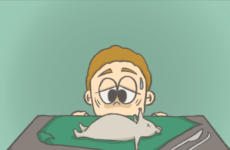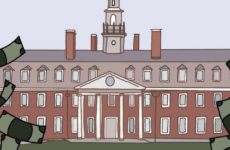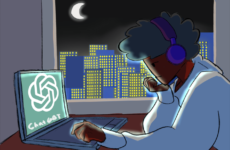By the end of spring term, many Choate students — especially seniors — come to the regrettable realization that they have failed to establish relationships with individuals outside of their friend groups. After our first, maybe second year at Choate, we know who our friends are. Cliques are clearly defined and well-established. Having a group of supportive companions is an indispensable part of being in high school. However, the problem arises when we become disinclined to socialize outside of our friend group. Not only does this expose a growing reluctance among students to understand different people and opinions, it also leads to the creation of a community in which communication and diverse interactions are limited.
Unless you are new, most of the people that you have met within the past year most likely shared a class with you. This unfortunate reality highlights that we don’t pursue the opportunity to meet new people or be outgoing — we wait for that opportunity to come to us. As time goes on, we walk past other students that could potentially be close friends of ours. Our own unwillingness to initiate conversation restricts us from many potentially meaningful relationships.
The exceptionality of all Choate students is guaranteed through the admission process, where character and personality are important considerations when admissions officers review applications. On my revisit day, it was clear to me that Choate Rosemary Hall’s student body was kinder, more respectful, and more considerate than any of its peer schools. Yet while students here take advantage of the extensive academic, athletic, and other extracurricular opportunities available to them on campus, they fail to fully appreciate the breadth of diverse personalities and individuals around them.
Now, a clarification for the administration: don’t take this as a call for more initiatives like community lunch. Forcing us to sacrifice a free period by sitting at an assigned lunch table on Fridays makes us miserable, not sociable. Rather, this is more of an individualized call to action. In a recent all-school meeting, Julian Yau expressed this same concern: that the most polarized place on campus also happens to be the center of our campus, Hill House. The dining hall exemplifies Julian’s message. If someone were to name one person sitting at a specific table in the dining hall during any meal, we could probably very accurately guess all other students sitting at that same table with that person.
This is because we have developed a legitimate phobia of meeting new people and creating friendships outside of our established friend groups. The idea of interacting exclusively within our “circles” or “squads” in itself limits the relationships that we are able to make here at Choate. The truth is that most Choate students are nice; unfortunately, the same sort of down to earth, affable people won’t surround many of us when we graduate. We will look back and miss the sense of family and shared respect that flourished and is still flourishing throughout this campus today. We may or may not admit to our negligence to be more sociable, but we will all eventually regret not doing so.
Starting a conversation, lending a helping hand, or simply acknowledging someone’s presence goes a long way. These social efforts embody the community values we as students of Choate should strive to represent. Think about the friends you’ve made at Choate and how you met them. These relationships are usually created through common extracurricular or academic interests. Now, think about the friendships that could be lifelong but won’t, because we have settled for our current group of friends and decided against branching out of that group. The Choate community is a genuinely amazing one, but it isn’t perfect; taking initiative to bring about an even closer-knit and friendlier campus is a start to getting us there.




